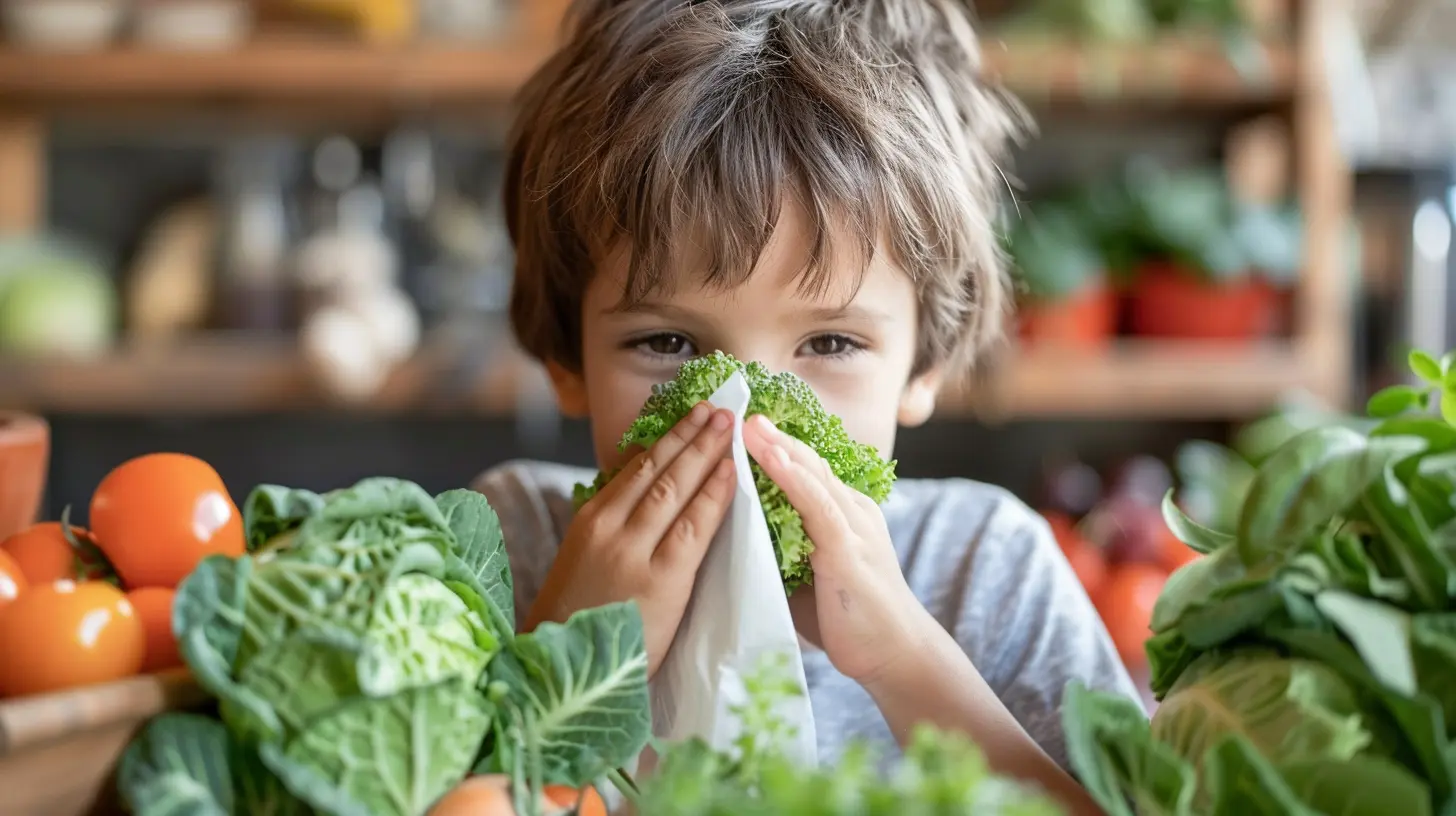Immune Support for Kids: What You Should Know
16 September 2025
Keeping your little ones healthy is every parent's priority. But let's be honest, kids are like tiny germ magnets. Whether they're at school, daycare, or the playground, they're constantly exposed to bacteria and viruses. So, how can you strengthen their immune system and keep those sniffles at bay?
Luckily, there are many natural ways to support your child's immune system. In this guide, we'll dive into everything you need to know about immune support for kids, from diet and sleep to supplements and lifestyle habits. 
Understanding Your Child’s Immune System
Before we get into the nitty-gritty, let's talk about how your child's immune system actually works.The immune system is like a personal bodyguard, always on the lookout for harmful invaders like bacteria, viruses, and toxins. It's made up of different components, including white blood cells, antibodies, and the lymphatic system, all working together to fight off infections.
For kids, their immune systems are still developing, which is why they tend to get sick more often. The good news? With the right support, their bodies can become stronger and more resilient over time! 
Essential Ways to Support Your Child’s Immune System
Now that we know how the immune system works, let’s get into the real stuff—how you can help strengthen it.1. Prioritize a Nutrient-Rich Diet
Food plays a HUGE role in immune health. You are what you eat, right? The same goes for kids. A diet packed with the right nutrients can do wonders for their immune system.Here’s what their plate should include:
Vitamins and Minerals for Immune Health
- Vitamin C – Found in citrus fruits, bell peppers, and strawberries, this vitamin is a powerhouse for fighting infections.- Vitamin D – Supports immune function and can be found in fatty fish, eggs, and fortified dairy products. Sunlight also helps the body produce vitamin D.
- Zinc – Essential for immune response, zinc is found in foods like nuts, seeds, and lean meats.
- Probiotics – These "good bacteria" support gut health, which is closely linked to immunity. Yogurt, kefir, and fermented foods are great sources.
- Iron – Helps carry oxygen in the blood and keeps immune cells functioning properly. Spinach, lentils, and lean red meat are excellent sources.
Want to make sure your child gets these nutrients? Aim for a colorful plate at every meal!
2. Encourage Plenty of Sleep
Sleep isn’t just about rest—it’s when the body repairs itself and strengthens immunity. Kids need WAY more sleep than adults.Here’s a quick guide to how much sleep they should be getting:
- Toddlers (1-2 years old): 11-14 hours per day
- Preschoolers (3-5 years old): 10-13 hours per day
- School-age kids (6-12 years old): 9-12 hours per day
Lack of sleep weakens the immune system, making kids more susceptible to colds and infections. So, set a bedtime routine, limit screen time before bed, and create a calm sleeping environment.
3. Keep Them Active
Exercise doesn’t just build strong muscles—it strengthens the immune system too! Regular physical activity increases circulation, reduces stress, and helps immune cells move throughout the body more efficiently.Encourage active play, outdoor adventures, or even just family walks. The goal is to keep kids moving every day!
4. Teach Proper Hygiene
If there's one thing the pandemic reminded us, it's that basic hygiene goes a long way in preventing infections. Kids might not always be the best at remembering to wash their hands, so making it a habit is key.Teach them to:
✔ Wash hands frequently (especially before eating and after using the bathroom)
✔ Cover their mouth when sneezing or coughing
✔ Avoid touching their face too much (easier said than done!)
Good hygiene reduces the risk of spreading germs, keeping illnesses at bay.
5. Manage Stress and Emotional Well-Being
Kids experience stress too, and believe it or not, stress can weaken the immune system. Whether it’s anxiety about school, social pressures, or big life changes, emotional stress can take a toll on their health.Here’s how to help:
✔ Encourage open conversations
✔ Teach relaxation techniques like deep breathing or mindfulness
✔ Ensure they have time for play and creativity
✔ Limit overstimulation from screens
A happy, relaxed child is more likely to have a balanced immune system.
6. Stay Hydrated
Water is essential for overall health, including immune function. It helps flush out toxins, keeps the body hydrated, and supports digestion.How much water do kids need?
- Toddlers (1-3 years old): About 4 cups per day
- School-age kids (4-8 years old): About 5 cups per day
- Older kids (9-13 years old): Around 7-8 cups per day
If plain water isn’t their thing, offer herbal teas, diluted fruit juices, or water-rich foods like cucumbers and watermelon.
7. Consider Immune-Boosting Supplements
While a balanced diet should provide most nutrients, some kids might need extra support. Here are a few supplements that can help:- Multivitamins – A good option if your child is a picky eater.
- Vitamin C & D – Especially useful during flu season.
- Probiotics – Great for gut health and immunity.
- Elderberry Syrup – Some studies suggest elderberry may help reduce the duration of colds.
Always check with a pediatrician before adding any new supplements! 
Do Kids Really Need Extra Immune Boosters?
There’s a lot of buzz around “immune-boosting” products, but do kids really need them? The truth is, a strong immune system isn’t just about taking supplements—it’s about daily habits.The best way to support their immunity? A combination of good nutrition, proper sleep, regular exercise, and overall healthy living. No magic pill can replace these fundamentals! 
Final Thoughts
Supporting your child’s immune system doesn’t have to be complicated. Simple changes like improving their diet, ensuring they get enough rest, and encouraging hygiene habits can make a big difference.Kids will get sick—it’s part of growing up. But with the right immune support, they’ll recover faster and stay healthier in the long run. So, stock up on those fruits and veggies, set up a bedtime routine, and let your little one’s immune system thrive!
all images in this post were generated using AI tools
Category:
Immune SystemAuthor:

Laurie Barlow
Discussion
rate this article
1 comments
Oscar Vance
Thank you for this informative article on immune support for kids. As a parent, I appreciate the practical tips and insights you’ve shared. It’s so important to prioritize our children's health, and your guidance helps us make informed choices for their well-being.
October 7, 2025 at 4:03 AM

Laurie Barlow
Thank you for your kind words! I'm glad you found the article helpful in prioritizing your children's health.


